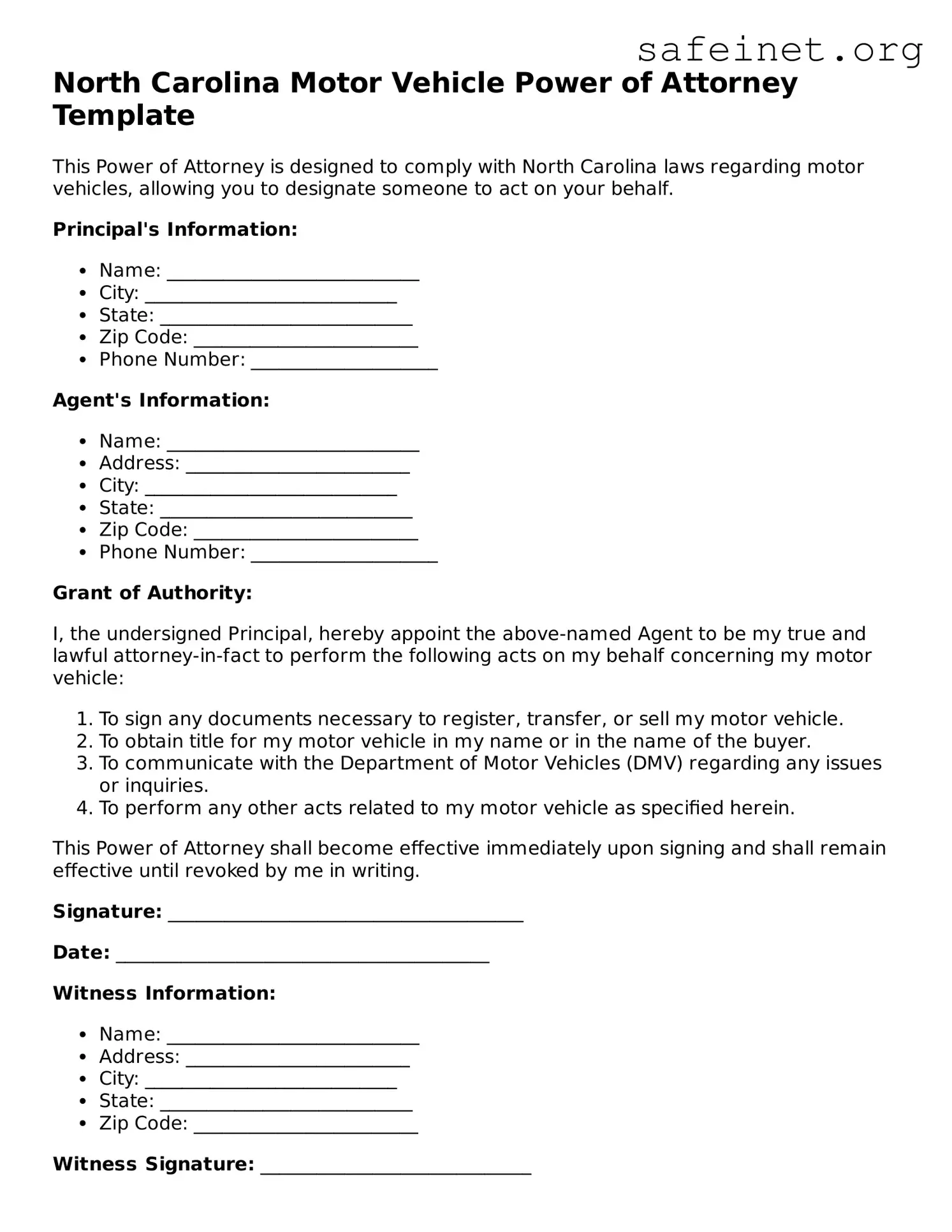What is a North Carolina Motor Vehicle Power of Attorney form?
The North Carolina Motor Vehicle Power of Attorney form is a legal document that allows an individual to appoint another person to handle specific tasks related to their vehicle. This document grants the appointed person, known as the agent, the authority to perform actions such as signing documents for vehicle registration, transferring titles, and managing other motor vehicle-related matters on behalf of the principal, or the person granting the power.
Who should consider using this form?
This form is useful for anyone who needs to delegate responsibilities related to their vehicle to another trusted person. For example, individuals who are unable to attend a DMV appointment or those who want to have someone else handle the sale or transfer of their vehicle may find this document beneficial.
How do I fill out the form?
Filling out the Motor Vehicle Power of Attorney form involves providing details about the principal, the agent, and the specific powers being granted. It's important to include accurate information such as names, addresses, and vehicle identification numbers (VINs). The form should be signed by the principal and, if required, witnessed or notarized.
Do I need a notary public to sign the form?
Is there a fee associated with this form?
There typically is no fee solely for completing the Motor Vehicle Power of Attorney form itself. However, there may be costs associated with notarization, document recording, or other fees related to processing the vehicle transaction at the DMV.
How long is the power of attorney valid?
The Power of Attorney remains valid until it is revoked by the principal or until the specific task outlined in the form is completed. It’s important for the principal to inform the agent if they decide to revoke the power, and any parties involved should be notified of the revocation to prevent unauthorized actions.
Can I use this form for multiple vehicles?
Yes, the form can be used to authorize the agent to act on behalf of the principal for multiple vehicles. To ensure clarity, it's advisable to list each vehicle and include corresponding VINs in the form.
What should I do if the agent cannot perform their duties?
If the agent is unable to carry out their responsibilities, the principal can either choose another agent or revoke the existing Power of Attorney. It’s essential to communicate with the new agent about their duties and responsibilities clearly.
Where can I obtain the Motor Vehicle Power of Attorney form?
The Motor Vehicle Power of Attorney form can often be obtained from the North Carolina Division of Motor Vehicles (NCDMV) website or at local DMV offices. It's essential to ensure you are using the most current version of the form to comply with state regulations.
